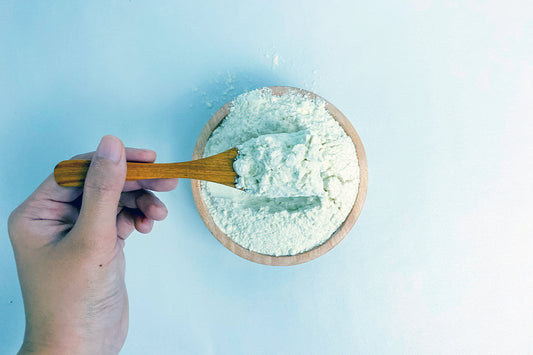Welcome to our comprehensive guide on managing blood sugar levels. Whether you have diabetes or are simply keen on maintaining optimal health, understanding and controlling your blood sugar is crucial. In this blog, we will dive into the importance of blood sugar management for a healthy lifestyle. By maintaining healthy blood sugar levels, you can reduce the risk of type 2 diabetes and enhance your overall well-being. We'll explore a variety of foods that not only help stabilize blood sugar but also positively affect your body’s overall health management.
Why Is Blood Sugar Regulation Important?
Blood sugar, also known as blood glucose, plays a pivotal role in our body's energy mechanics. It's the main source of energy for our body's cells, and it comes from the food we eat. The regulation of blood sugar levels is essential because it helps ensure that our body functions efficiently and remains healthy. However, maintaining blood sugar within a safe range is crucial. Abnormal levels, whether high or low, can lead to various health complications.
For individuals with diabetes, blood sugar management is a daily concern. Diabetes is marked by the body’s inability to effectively process glucose, leading either to insulin resistance or to inadequate insulin production. This can cause dangerous fluctuations in blood sugar levels. For those without diabetes, consistent blood sugar management can prevent the onset of type 2 diabetes and other metabolic syndromes.
The Impact of Insulin Sensitivity and Resistance
A key component in the regulation of blood sugar is insulin—a hormone produced by the pancreas that helps the body use glucose for energy. Insulin resistance is a condition where the body's cells do not respond normally to insulin. As a result, higher levels of insulin are needed for glucose to enter cells. Over time, this can lead to higher glucose levels in the blood. Improving your insulin sensitivity can help reverse this trend, making your body more efficient at processing sugar.
How Foods Influence Blood Sugar Levels
What we choose to eat has a direct impact on our blood sugar levels. Certain foods can cause rapid spikes in glucose, while others help maintain it at a steady level. Understanding which foods influence blood sugar in different ways can help us make informed dietary choices. This not only aids in maintaining stable blood sugar levels but also supports overall health.
In the following sections, we will explore specific foods that are beneficial for blood sugar control, discuss their effects, and provide practical advice on how to incorporate them into your diet effectively. By choosing the right foods, you can enhance your body's ability to manage blood sugar, thereby boosting your health and vitality.
- Fatty Fish
Fatty fish like salmon, mackerel, sardines, and trout are rich in omega-3 fatty acids, which are crucial for heart health and reducing inflammation. Omega-3s can help improve insulin sensitivity, which in turn helps regulate blood sugar levels. Eating fatty fish several times a week can be a healthy addition to your diet, providing not only regulation of blood sugars but also essential nutrients.
- Leafy Greens
Vegetables such as spinach, kale, and collards are low in calories and carbohydrates, which cause a minimal impact on blood sugar levels. They are packed with nutrients and antioxidants that help protect your heart and eye health.
- Whole Grains
Whole grains like oats, whole wheat, and brown rice have a lower glycemic index than refined grains. They contain more fiber, which slows the digestion process and results in a slower release of glucose into the bloodstream, thus preventing spikes in blood sugar levels.
- Nuts and Seeds
Nuts and seeds, such as almonds, walnuts, flaxseeds, and chia seeds, are dense in fiber and healthy fats. They are known to decrease blood sugar, reduce blood pressure, and lower LDL cholesterol levels. Their high fiber content also helps slow the absorption of sugar into the bloodstream.
- Legumes
Beans, lentils, and chickpeas are high in fiber and protein, making them an excellent choice for blood sugar regulation. The fiber and protein help slow down carbohydrate digestion, causing slower increases in blood sugar post-meals.
- Avocados
The healthy fats in avocados can help stabilize blood sugar levels. The monounsaturated fats in avocados can improve heart health, decrease inflammation, and have been shown to provide a slow and steady source of energy without spiking your sugar levels.
- Garlic
Garlic has potential benefits for blood sugar control. It may help lower blood glucose levels and improve insulin sensitivity. Garlic adds flavor without adding extra carbohydrates or calories, making it ideal for a blood sugar-friendly diet.
- Chia Seeds
Chia seeds are high in fiber, which can help lower blood sugar levels by slowing down the rate at which food moves through your gut and is absorbed. Chia seeds also help in maintaining a healthy weight, which contributes to better blood sugar management.
- Greek Yogurt
Greek yogurt is a high-protein dairy product that has been shown to improve blood sugar control and heart health, thanks to its combination of probiotics, calcium, and protein. It has a lower lactose content than other dairy products, and its high protein level helps in reducing appetite and intake, potentially leading to improvements in blood sugar control.
- Sweet Potatoes
Sweet potatoes are a nutritious, lower glycemic index alternative to white potatoes. Their high fiber content helps reduce the rate of digestion and the subsequent release of glucose into the bloodstream, providing a more stable increase in blood sugar.
Frequently Asked Questions
- What should I eat for breakfast to keep my blood sugar stable?
A breakfast high in fiber and protein, such as oatmeal with nuts and seeds or eggs with spinach, can help stabilize morning blood sugar levels.
- How often should I eat to manage my blood sugar?
Eating smaller, more frequent meals can help maintain steady blood sugar levels. It prevents extreme highs and lows that can occur with larger, less frequent meals.
- Can I ever eat sweets or high GI foods?
Balance is key in a healthy diet. It's okay to enjoy high GI foods occasionally, especially if you balance them with low GI foods to minimize the impact on your blood sugar.
Conclusion
Incorporating foods that improve blood sugar regulation into your diet is essential for both managing your blood sugar and maintaining overall health. Eating a variety of these foods can help reduce blood sugar levels, improve insulin sensitivity, and decrease the risk of type 2 diabetes. Remember, a balanced diet combined with regular physical activity is the best strategy for a healthy life.






